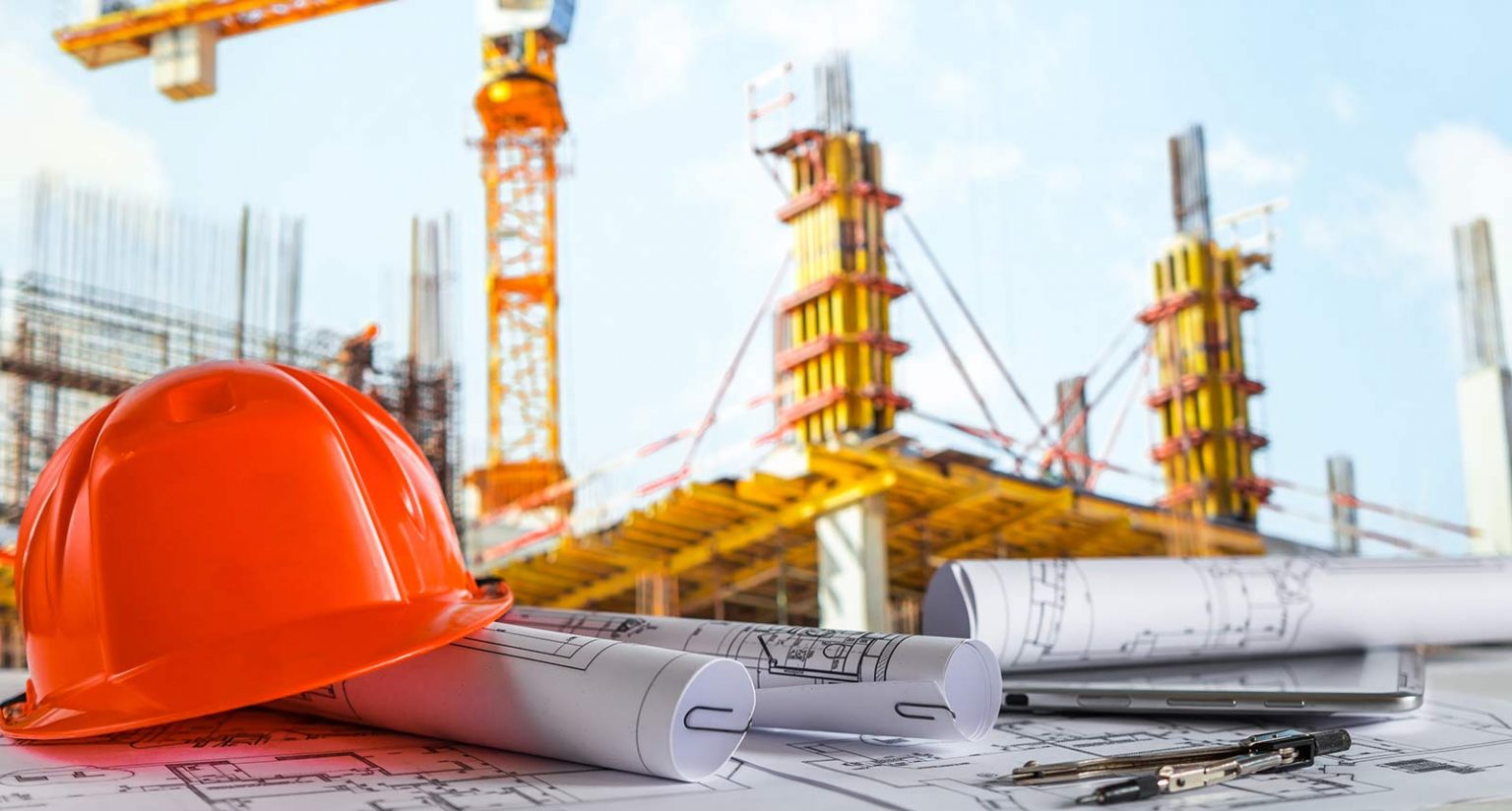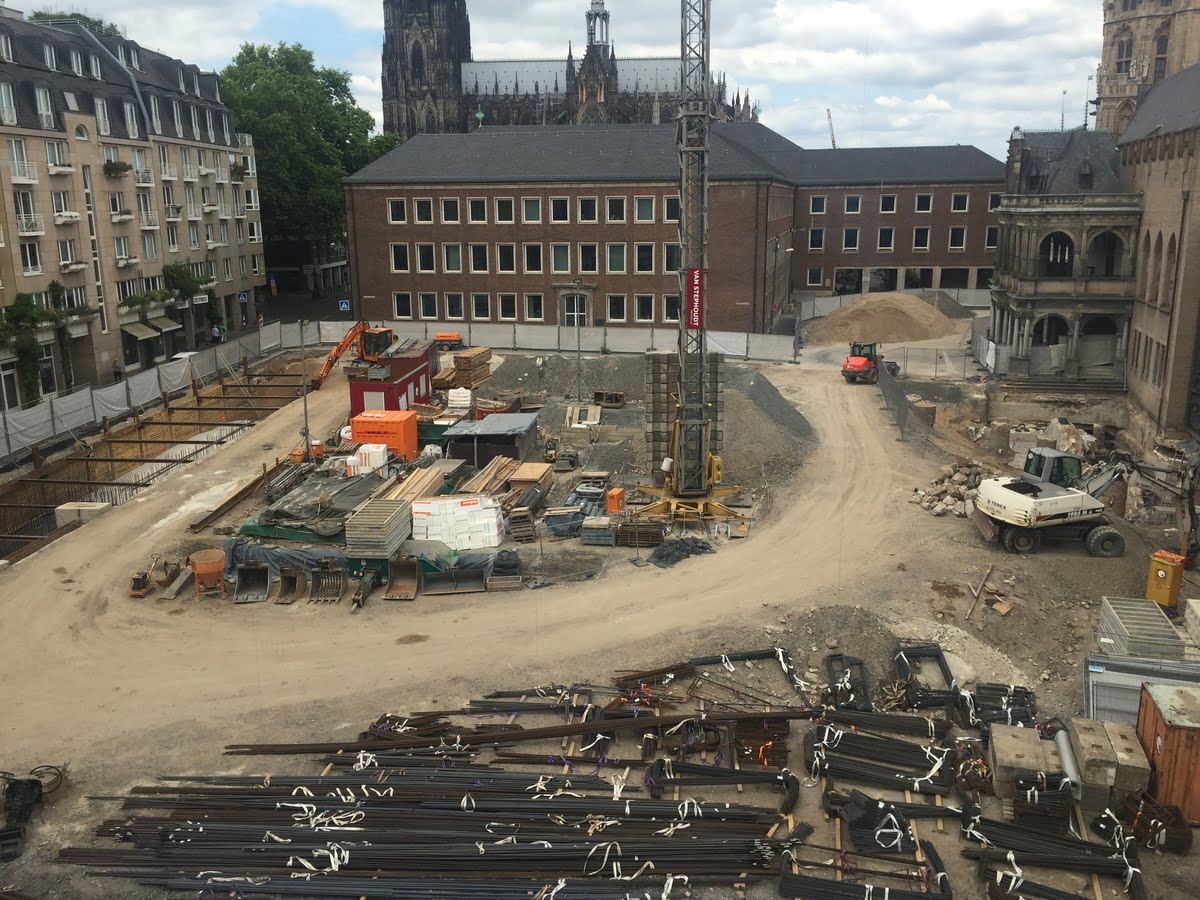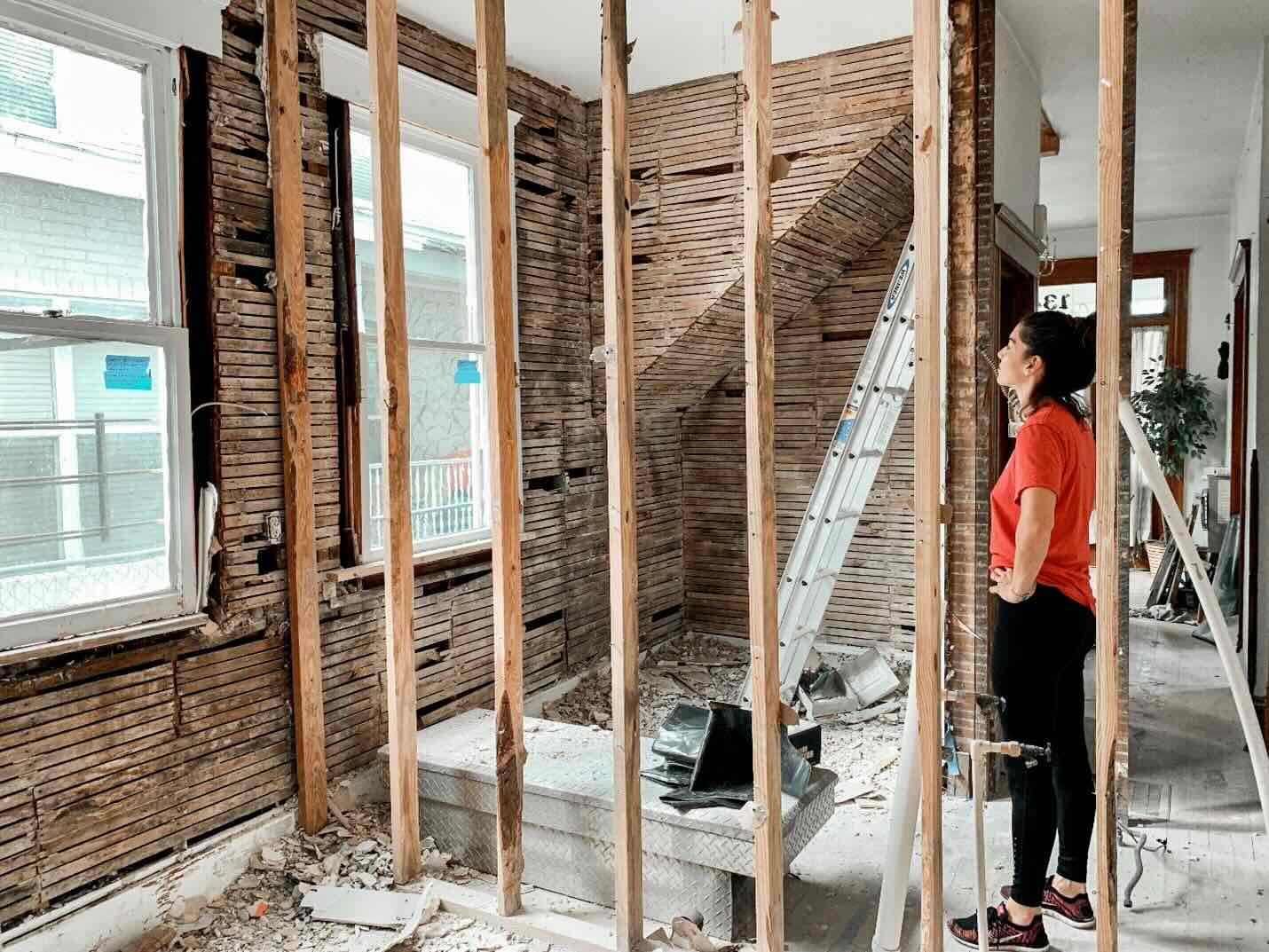Home>diy>Building & Construction>What Is Construction Consulting


Building & Construction
What Is Construction Consulting
Modified: January 24, 2024
Looking for construction consulting services? Learn more about the benefits and expertise of building-construction consultants to ensure a successful project.
(Many of the links in this article redirect to a specific reviewed product. Your purchase of these products through affiliate links helps to generate commission for Storables.com, at no extra cost. Learn more)
Introduction
Construction consulting is a vital component of the building industry, playing a crucial role in ensuring successful construction projects. Construction consultants bring their expertise and knowledge to the table, offering invaluable guidance and advice throughout the entire construction process. From project inception to completion, these professionals help streamline operations, mitigate risks, and optimize project outcomes.
In simple terms, construction consulting involves the provision of expert advice and assistance to clients in planning, designing, and managing construction projects. It encompasses a wide range of services, including project management, cost estimation, risk assessment, quality control, and dispute resolution.
Construction consultants act as trusted advisors, working closely with both builders and clients to ensure that projects are executed efficiently and meet all requirements and regulations. Their deep understanding of the construction industry enables them to navigate complex challenges and deliver successful outcomes.
Throughout this article, we will delve deeper into the world of construction consulting, exploring the roles, skillsets, and services that construction consultants provide. We will also discuss the benefits of hiring construction consultants and the challenges they face in their profession.
Key Takeaways:
- Construction consulting provides expert guidance and support throughout the entire construction process, from project planning to risk management, ensuring successful project outcomes.
- Construction consultants possess a unique blend of technical expertise, project management skills, and industry knowledge, offering invaluable insights and support to clients in the construction industry.
Read more: What Is A Consultant In Construction
Definition of Construction Consulting
Construction consulting refers to the specialized field that provides expert advice and guidance to individuals, businesses, and organizations involved in the construction industry. It encompasses a wide range of services aimed at improving project efficiency, reducing risks, and ensuring successful project outcomes.
At its core, construction consulting involves the strategic planning, coordination, and oversight of construction projects. Consultants collaborate with clients, architects, engineers, contractors, and other stakeholders to ensure that projects adhere to timeline, budget, and quality specifications.
The role of a construction consultant is multi-faceted. They are responsible for assessing project feasibility, identifying potential risks, and developing effective strategies to mitigate these risks. They provide guidance on project design, cost management, scheduling, and procurement, overseeing the entire construction process from inception to completion.
Construction consulting also involves conducting thorough research and analysis to make informed decisions. Consultants stay up to date with industry trends, best practices, and regulatory requirements, leveraging their knowledge to deliver comprehensive and customized solutions.
Successful construction consultants possess a unique blend of technical expertise, project management skills, and industry knowledge. They must be adept at problem-solving, communication, and collaboration to navigate the complexities of the construction industry and manage diverse project teams.
Overall, construction consulting is a crucial component of the construction industry, providing invaluable insights and support throughout the project lifecycle. It helps clients make informed decisions, optimize resources, and achieve their construction goals with maximum efficiency.
Role of a Construction Consultant
The role of a construction consultant is multifaceted, demanding a diverse skill set and a thorough understanding of the construction industry. Construction consultants serve as trusted advisors, working closely with clients to provide expert guidance and support throughout the various stages of a construction project. Let’s take a closer look at the key responsibilities and roles of a construction consultant:
- Project Planning and Management: Construction consultants play a pivotal role in project planning, providing insights on project feasibility, budgeting, and scheduling. They help clients develop comprehensive project plans, set realistic goals, and establish project milestones. Throughout the project, construction consultants oversee and manage all aspects, ensuring that the project remains on track and within budget.
- Risk Assessment and Management: Construction projects are inherently complex and involve various risks. Construction consultants conduct thorough risk assessments, identifying potential challenges and developing effective risk management strategies. They monitor and mitigate risks related to safety, quality, procurement, and regulatory compliance to ensure smooth project execution.
- Cost Estimation and Management: Construction consultants have expertise in cost estimation, helping clients develop accurate budgets and evaluate project costs. They analyze project specifications, conduct market research, and leverage their industry knowledge to provide reliable cost estimates. Throughout the project, construction consultants monitor costs, identify cost-saving opportunities, and strive to keep the project within the allocated budget.
- Quality Control and Compliance: Maintaining high-quality standards is paramount in the construction industry. Construction consultants implement robust quality control processes, overseeing construction activities to ensure compliance with building codes, regulations, and industry standards. They conduct regular inspections, coordinate with contractors and subcontractors, and resolve any quality-related issues that may arise during the project.
- Contract and Procurement Support: Construction projects involve numerous contracts and procurement activities. Construction consultants assist clients in drafting and negotiating contracts, ensuring that all parties are in agreement and that the terms and conditions are fair and favorable. They also provide guidance on procurement strategies, vendor selection, and contract management throughout the project lifecycle.
- Dispute Resolution: Construction projects can face disputes and conflicts. Construction consultants play a crucial role in facilitating dispute resolution, providing mediation services and expert advice to help parties find mutually beneficial solutions. By leveraging their industry knowledge and experience, construction consultants strive to minimize delays and disruptions caused by conflicts.
In summary, construction consultants serve as strategic advisors, providing comprehensive support and guidance throughout the construction project. Their roles encompass project planning and management, risk assessment and management, cost estimation and management, quality control and compliance, contract and procurement support, and dispute resolution. By leveraging their expertise, construction consultants contribute to the successful execution of construction projects.
Skills and Qualifications of a Construction Consultant
Being a successful construction consultant requires a unique skill set and a strong foundation of qualifications. To effectively navigate the complex world of construction consulting, individuals must possess a combination of technical expertise, project management skills, and industry knowledge. Here are the key skills and qualifications that make a construction consultant proficient in their role:
- Technical Knowledge: Construction consultants must have a deep understanding of construction principles, building codes, regulations, and industry best practices. They should possess technical expertise in areas such as engineering, architecture, construction methods, and materials. This knowledge allows them to provide informed recommendations and solutions to clients.
- Project Management Skills: Construction projects involve numerous moving parts and require effective project management. Construction consultants should be skilled in project planning, resource allocation, scheduling, and risk management. They must have the ability to coordinate multiple stakeholders, manage budgets and timelines, and ensure all project milestones are met.
- Communication and Interpersonal Skills: Strong communication skills are essential for construction consultants to effectively collaborate with clients, contractors, architects, engineers, and other stakeholders. They should be able to listen actively, ask the right questions, and convey complex concepts in a clear and concise manner. Additionally, the ability to build strong relationships and resolve conflicts is crucial.
- Analytical and Problem-Solving Abilities: Construction consultants need to analyze complex data, make informed decisions, and solve problems that arise during construction projects. They should possess strong analytical and critical-thinking skills to assess risks, evaluate options, and develop effective strategies. Creative problem-solving skills are also valuable to find innovative solutions to challenges.
- Financial Acumen: Construction consultants should have a solid understanding of construction costs, budgets, and financial management. They need to be skilled in cost estimating, budgeting, and forecasting to provide accurate financial advice to clients. Knowledge of procurement processes and contract management is also valuable in ensuring cost-effective operations.
- Industry Experience: Construction consultants with hands-on experience in the construction industry possess a competitive advantage. Practical knowledge of construction practices, regulations, and industry trends enables them to provide real-world insights and solutions to their clients.
- Professional Certifications: While not mandatory, professional certifications can enhance the credibility and qualifications of a construction consultant. Certifications such as Certified Construction Manager (CCM), Project Management Professional (PMP), or LEED Accredited Professional (LEED AP) demonstrate a commitment to professional development and adherence to industry standards.
In summary, successful construction consultants possess a combination of technical knowledge, project management skills, communication abilities, problem-solving capabilities, financial acumen, industry experience, and professional certifications. By leveraging these skills and qualifications, construction consultants are equipped to provide valuable advice and support to clients throughout the construction process.
When hiring a construction consulting firm, look for a company with a proven track record, relevant experience, and strong communication skills. It’s important to find a consultant who can effectively manage your project and provide valuable insights and recommendations.
Services Provided by Construction Consultants
Construction consultants offer a wide range of services to individuals, businesses, and organizations involved in construction projects. Their expertise and guidance are invaluable in ensuring successful project outcomes. Here are some of the key services provided by construction consultants:
- Project Feasibility Analysis: Construction consultants conduct in-depth assessments to determine the viability of construction projects. They analyze factors such as site conditions, market demand, regulatory requirements, and financial feasibility. This analysis helps clients make informed decisions before investing significant resources into a project.
- Project Planning and Design: Construction consultants assist clients in developing comprehensive project plans and designs. They collaborate with architects and engineers to create functional and aesthetically pleasing designs that align with the client’s objectives and budget. Consultants also provide insights on materials, technologies, and construction methods to optimize the project’s efficiency.
- Cost Estimation and Budgeting: Construction consultants specialize in cost estimation, providing clients with accurate budget forecasts based on project specifications. They analyze various cost factors, such as labor, materials, equipment, permits, and contingencies, to develop comprehensive budgets. Consultants monitor and control costs throughout the project to ensure that it remains within budget constraints.
- Project Management: Construction consultants play a vital role in project management, overseeing operations and ensuring timely completion. They develop project schedules, allocate resources, and coordinate with contractors and subcontractors. Consultants monitor project progress, identify potential risks, and resolve issues to keep the project on track.
- Risk Assessment and Mitigation: Construction projects involve inherent risks, ranging from safety hazards to financial uncertainties. Construction consultants conduct comprehensive risk assessments, identifying potential risks and developing strategies to mitigate them. They implement risk management procedures, monitor project activities, and provide recommendations to minimize risks and ensure project success.
- Quality Control and Assurance: Maintaining high-quality standards is crucial in construction projects. Construction consultants implement robust quality control processes to ensure compliance with building codes, regulations, and industry standards. They conduct regular inspections, review project documentation, and facilitate quality improvement initiatives to deliver projects that meet or exceed client expectations.
- Contract and Procurement Support: Construction consultants assist clients in drafting and negotiating contracts with contractors, subcontractors, and vendors. They provide guidance on contract terms, pricing, and legal requirements to protect the client’s interests. Consultants also offer support in the procurement process, helping clients choose the right suppliers and obtain competitive bids.
- Dispute Resolution: Construction projects can face disputes and conflicts. Construction consultants play a crucial role in facilitating dispute resolution, providing mediation services and expert advice to help parties reach mutually beneficial solutions. Their objective perspective and industry knowledge contribute to the fair and timely resolution of conflicts.
These are just a few examples of the services provided by construction consultants. The specific services offered may vary depending on the consultant’s expertise, client requirements, and the nature of the construction project. Regardless of the services provided, construction consultants bring valuable insights, skills, and support to ensure the successful execution of construction projects.
Read more: What Does A Construction Consultant Do
Benefits of Hiring Construction Consultants
Hiring a construction consultant can offer numerous benefits for individuals, businesses, and organizations involved in construction projects. These professionals bring their expertise, industry knowledge, and strategic guidance to ensure successful project outcomes. Here are some of the key benefits of hiring construction consultants:
- Expertise and Knowledge: Construction consultants have a deep understanding of the construction industry, including regulations, best practices, and emerging trends. Their expertise allows them to provide valuable insights and advice throughout the project lifecycle, helping clients make informed decisions and avoid costly mistakes.
- Enhanced Project Planning: Construction consultants play a crucial role in project planning, assisting clients in developing comprehensive project plans that align with their objectives and budget. Their experience in project management ensures that key aspects such as scheduling, resource allocation, and risk assessment are properly addressed.
- Cost Management: Construction consultants specialize in cost estimation and budgeting, helping clients develop accurate budgets and avoid financial pitfalls. They can identify cost-saving strategies, negotiate favorable contracts, and monitor project costs to ensure that the project remains within budget constraints.
- Risk Mitigation: Construction projects are inherently risky, with potential challenges ranging from safety hazards to unforeseen delays. Construction consultants conduct thorough risk assessments, identifying potential risks and developing effective strategies to mitigate them. Their proactive approach minimizes the likelihood of costly setbacks and project disruptions.
- Quality Control and Assurance: Maintaining high-quality standards is vital in construction projects. Construction consultants implement robust quality control processes to ensure compliance with building codes, regulations, and industry standards. They conduct regular inspections, review project documentation, and facilitate quality improvement initiatives to deliver projects that meet or exceed client expectations.
- Efficient Project Management: Construction consultants possess strong project management skills and experience, ensuring optimal project coordination and facilitating effective communication among stakeholders. Their expertise in scheduling, resource management, and conflict resolution helps streamline project operations and minimize delays.
- Access to Networks and Resources: Construction consultants have extensive networks in the industry, including relationships with contractors, subcontractors, suppliers, and regulatory authorities. This enables them to connect clients with reliable and trusted professionals, ensuring access to quality resources and services.
- Objective Perspective: Construction consultants provide an objective perspective, offering unbiased advice and recommendations based on industry standards and best practices. Their impartiality helps in making informed decisions and resolving conflicts, ensuring the project’s best interests are upheld.
Overall, hiring a construction consultant brings numerous benefits to construction projects. From expertise and knowledge to efficient project management and risk mitigation, construction consultants play a crucial role in ensuring successful project outcomes. Their contributions help clients save time, mitigate risks, optimize resources, and achieve their construction goals with maximum efficiency.
Challenges Faced by Construction Consultants
While construction consulting can be a rewarding profession, it is not without its challenges. Construction consultants face various hurdles that require their adaptability, problem-solving skills, and industry expertise. Here are some of the key challenges faced by construction consultants:
- Complexity and Uncertainty: Construction projects are inherently complex, involving multiple stakeholders, intricate processes, and evolving requirements. Construction consultants need to navigate through this complexity while dealing with uncertainties related to project scope, timelines, and potential risks. Flexibility and the ability to adapt to changing circumstances are essential.
- Tight Deadlines and Time Constraints: Construction projects often operate on tight schedules, requiring consultants to meet strict deadlines. Consultants need to effectively manage their time while ensuring that project milestones are met. The ability to prioritize tasks, delegate responsibilities, and handle multiple projects simultaneously is crucial.
- Managing Expectations: Construction consultants work closely with clients and stakeholders who may have high expectations for the project’s success. Balancing these expectations with realistic goals and available resources can be challenging. Effective communication, managing client expectations, and providing transparent updates are essential to maintain trust and satisfaction.
- Managing Project Risks: Construction projects come with inherent risks and uncertainties. Construction consultants need to identify, assess, and effectively manage these risks throughout the project lifecycle. They must develop strategies to mitigate potential risks while minimizing disruption to project operations.
- Regulatory Compliance: Construction projects must adhere to numerous building codes, regulations, and permits. Ensuring compliance with these requirements can be complex and time-consuming. Construction consultants need to stay updated with the latest regulations and have a deep understanding of the local, state, and national codes to ensure project compliance.
- Conflict Resolution: Construction projects can encounter conflicts and disputes among stakeholders. Construction consultants are often called upon to mediate and resolve these conflicts, maintaining positive relationships between parties involved. The ability to effectively communicate, negotiate, and mediate disputes is crucial in managing conflicts and finding mutually beneficial solutions.
- Managing Budgets and Costs: Construction consultants are responsible for managing project budgets and controlling costs. Managing project finances, negotiating contracts, and monitoring expenses require strong financial acumen and attention to detail. Consultants must find cost-effective solutions without compromising on quality.
- Keeping Up with Industry Trends: The construction industry is constantly evolving, with new technologies, materials, and methodologies emerging. Construction consultants need to stay updated with the latest industry trends and best practices to provide clients with the most innovative and efficient solutions. Continuous learning and professional development are essential to maintain a competitive edge.
Despite these challenges, construction consultants have the expertise and skills to overcome them. Their ability to navigate complexities, adapt to changes, and provide effective solutions makes them invaluable assets in the construction industry.
Conclusion
Construction consulting plays a vital role in the success of construction projects. Construction consultants bring their expertise, industry knowledge, and strategic guidance to navigate the complexities of the construction industry. From project planning to risk analysis, cost estimation to quality control, construction consultants provide invaluable support throughout the project lifecycle.
By leveraging their technical skills and project management expertise, construction consultants help clients make informed decisions, optimize resources, and ensure successful project outcomes. They mitigate risks, manage budgets, and maintain high-quality standards to deliver projects that meet client expectations.
However, being a construction consultant is not without its challenges. From dealing with complex project requirements to managing tight deadlines, construction consultants must navigate through uncertainties and balance numerous responsibilities. Staying abreast of evolving regulations, resolving conflicts, and keeping up with industry trends are also part of the consultant’s responsibilities.
Despite these challenges, the benefits of hiring a construction consultant are immense. They provide expert advice, enhance project planning, mitigate risks, and ensure optimal project management. By leveraging their expertise, clients can save time, minimize costs, and achieve their construction goals efficiently.
In conclusion, construction consulting is an essential part of the building industry. Construction consultants bring a unique skill set, industry knowledge, and objective perspective to help clients navigate the complexities of construction projects. Their services have a profound impact on project success, ensuring that projects are completed within budget, on time, and to the highest quality standards.
Frequently Asked Questions about What Is Construction Consulting
Was this page helpful?
At Storables.com, we guarantee accurate and reliable information. Our content, validated by Expert Board Contributors, is crafted following stringent Editorial Policies. We're committed to providing you with well-researched, expert-backed insights for all your informational needs.















0 thoughts on “What Is Construction Consulting”